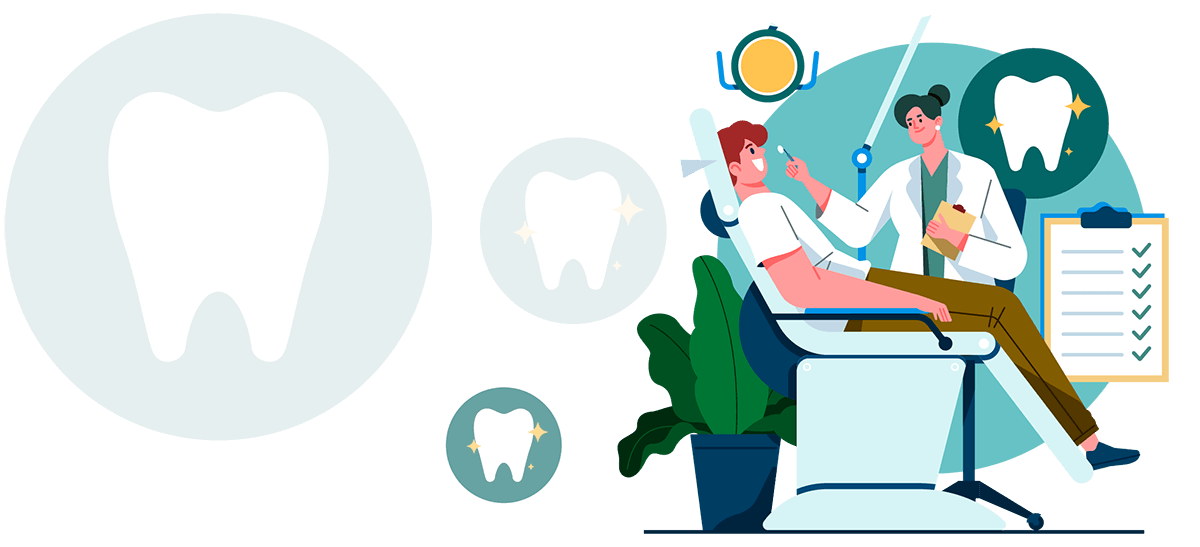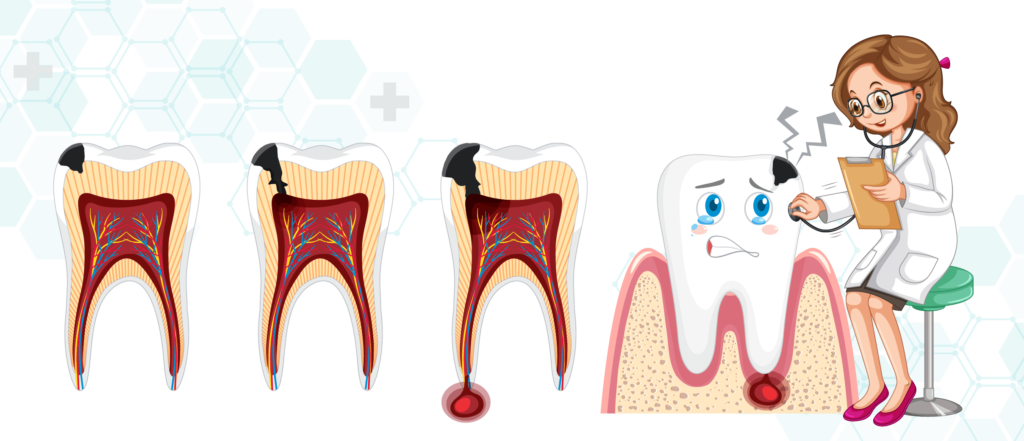
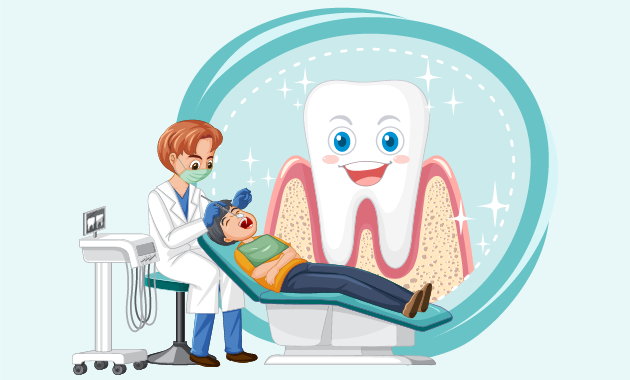
Transform your smile by fighting gum disease and its consequences.
Maintaining your gum health is crucial to keep a healthy balance of bacteria in your mouth. The increase in harmful bacteria leads to the onset of gum disease, which progresses to periodontal disease, a condition that can lead to:
- Bad breath
- Bleeding gums
- Loosening of teeth
Say yes to a perfect smile by making an appointment today!
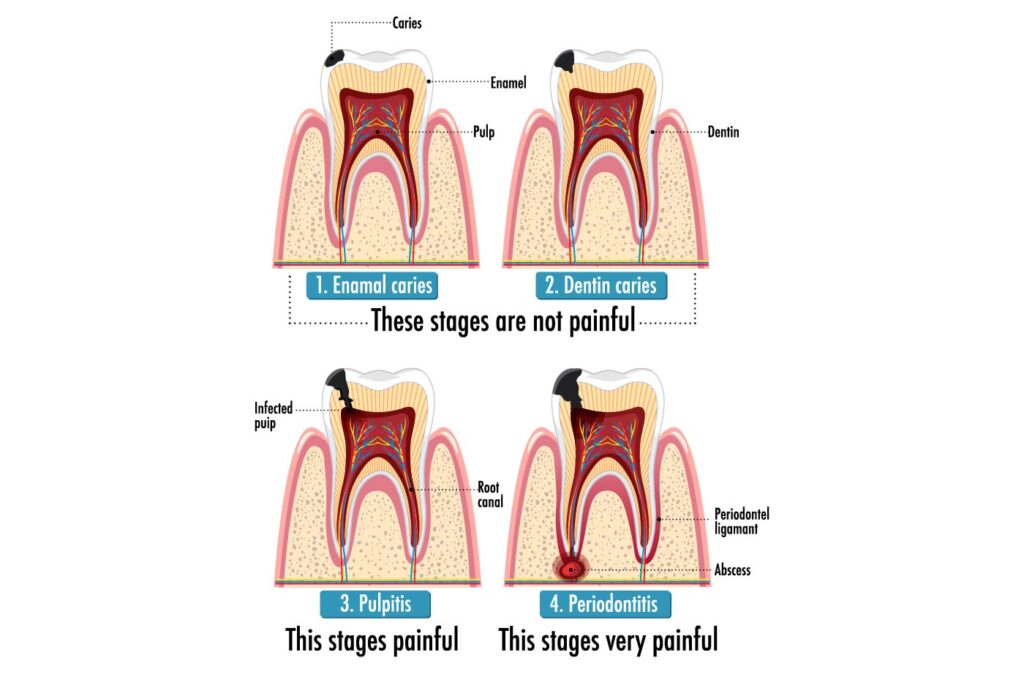
Let Us Understand Periodontitis Better
Perio disease is a condition that affects the gum and bone around teeth. It is mainly caused by bacteria that get deposited in the gum, leading to infection. This gum infection affects the surrounding bone, causing the loosening of teeth, and can also spread into the blood, causing lung issues, heart problems, bad breath, or uncontrolled diabetes.
By ignoring the early signs of gum periodontitis and not removing the plaque developed in the teeth and gums, you release toxins that inflame your gums. The first step to getting freedom from gum diseases is to visit your dentist, get a thorough examination, and oral prophylaxis to remove plaque and tartar.

Getting To Know The Signs And Symptoms Of Periodontitis
- Puffy or swollen gums
- Dark red or dark purple gums
- Bleeding in the gums
- Pink colour noticed in your toothbrush after brushing
- Spitting blood when brushing or flossing
- Bad breath that remains for a long time
- Loss of teeth
- Pain experienced while chewing
Noticing these signs is a warning bell to you to visit your dentist. The sooner you receive treatment, the more your chances of reversing the damage that perio disease can cause.
Comprehensive Treatment Options At Gnathos For Periodontitis
At Gnathos, our dental experts are well-versed in all types of gum disease and have extensive experience in periodontitis treatment for patients of all ages.We tailor the treatment to suit your underlying medical conditions, current health status, and your preferences.
Here are the nonsurgical options we recommend based on the progression of gum disease
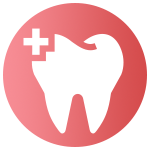
Root planning
This is done to smoothen the rough surfaces to prevent tartar and bacteria from building up further.

Gum prophylaxis
This process is done to remove plaque and tartar from the mouth. We also remove stains and do polishing for a better whitening of the teeth.

Antibiotics
Sometimes, we prescribe topical or oral antibiotics to treat the bacterial infection. It can be in the form of antibiotic mouth rinses, gels, or oral antibiotics.
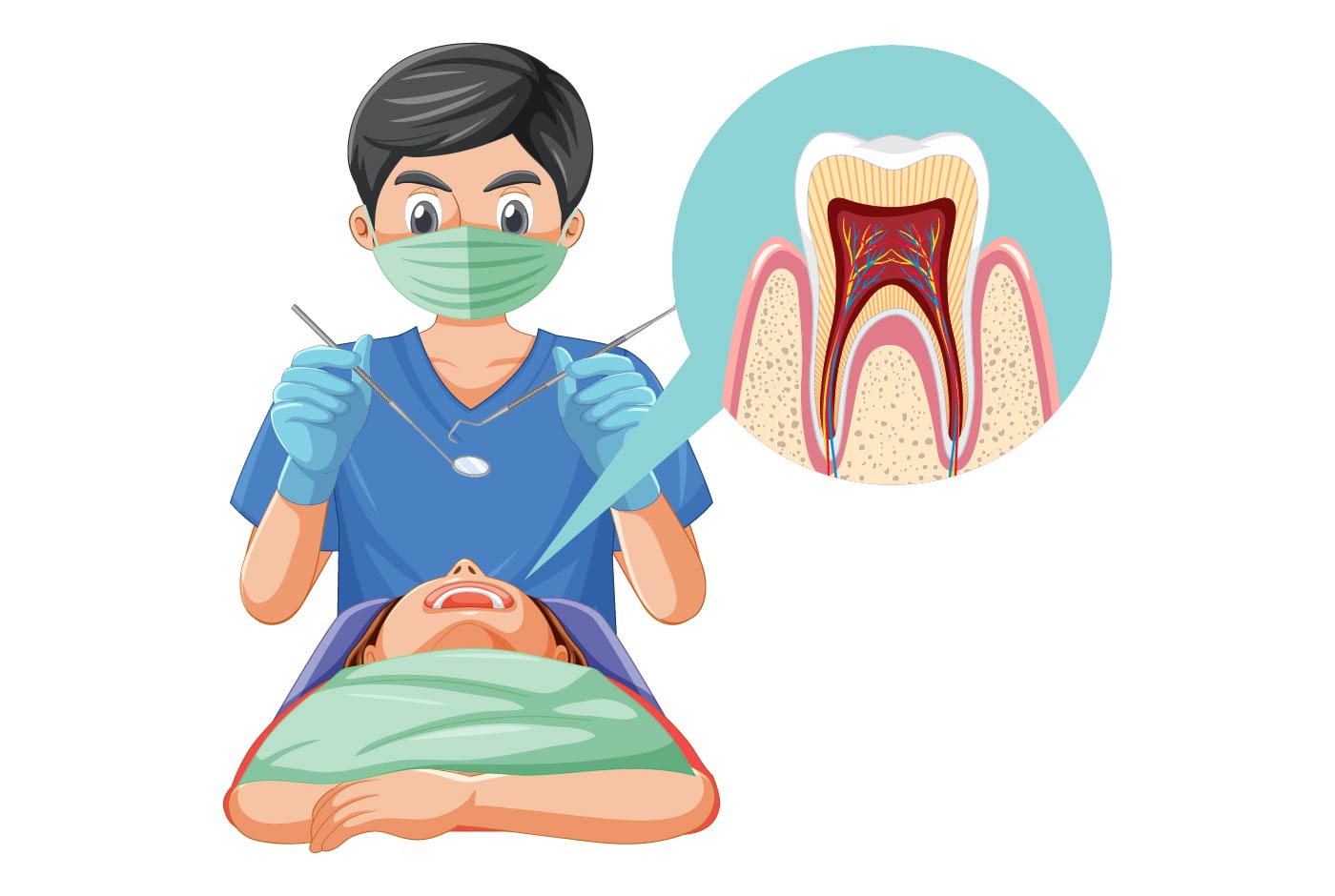
How Gum Surgery Can Play A Crucial Role in Periodontitis Treatment
When other treatments don’t provide the expected results, we give our patients the option of surgery. As an experienced dental hospital for gum surgery in Hyderabad, we recommend the most suitable surgery options that will reduce further gum loss and stimulate the growth of natural bone.
For Advanced Periodontitis, we recommend surgical treatment.
Laser flap surgery is done to remove the diseased tissue and sterilize the area, bone grafting helps replace the bone destroyed due to perio disease.
Types of Surgeries
Laser Flap Surgery

Step 1
We use a laser to target and destroy germs lodged in unhealthy tissues and periodontal pockets on the gums
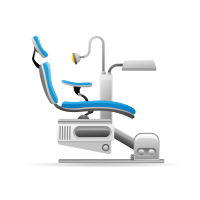
Step 2
The laser is also used to sterilize tissue and bone and stimulate blood clot formation to facilitate quick healing
A laser flap surgery is the best treatment method for gum diseases since it minimizes pain and bleeding while preventing tissue damage,
Bone Grafting

Step 1
We make the graft from bits of your own bone or make it out of artificial material. In other cases, the graft is obtained through donation.
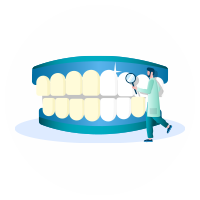
Step 2
We make an incision in the gum to expose the bone below, and then we add the grafting material.

Preventive Measures For Periodontitis
In addition to offering the best possible treatment, we offer expert advice to our patients on the importance of regular dental check-ups and what steps they can take to prevent gum diseases.
Here are some of the tips we offer to our patients
- Brush twice daily and rinse your mouth thoroughly after every meal or snack
- Use a soft toothbrush and change it every three months
- Floss daily using standard dental floss or interdental brushes
- Reduce tobacco consumption and smoking
- Schedule oral prophylaxis to get rid of plaque and tartar

